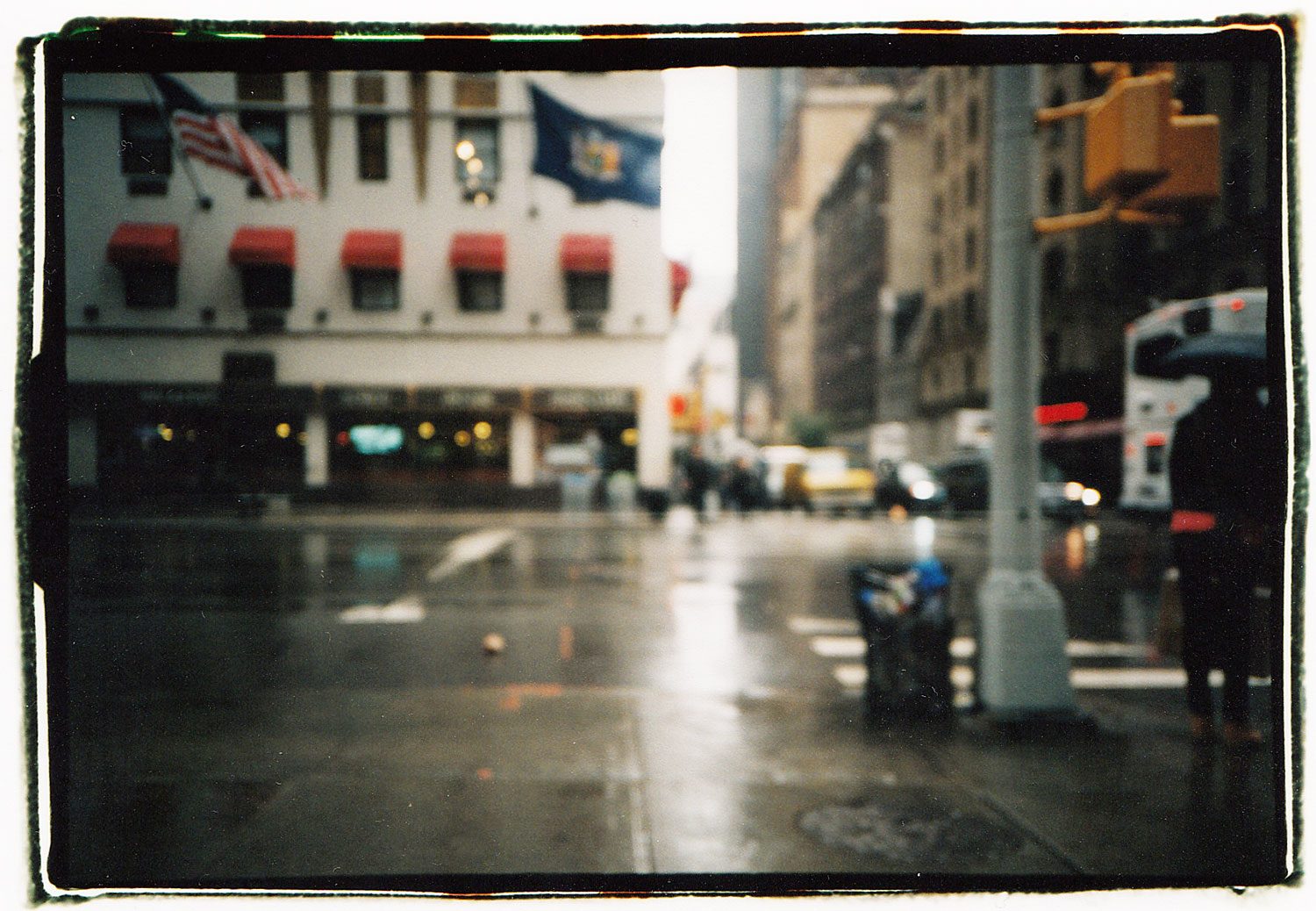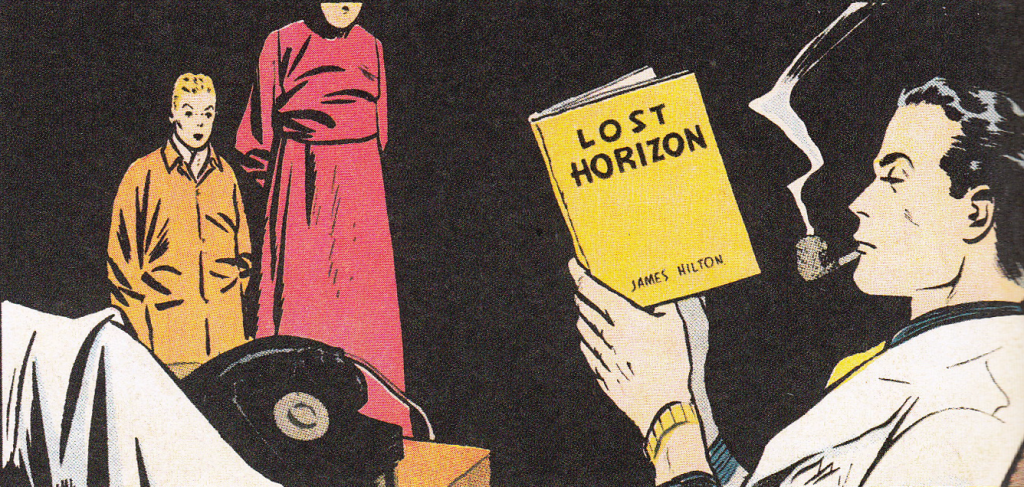March 2015
Via
3 March 2015, around 10.45.

Montaigne 1.8
6 March 2015, around 13.35.
When lately I withdrew to my own home, resolved, as far as in me lay, to think only of spending in rest and retirement the little time I still have to live, it seemed to me that I could do my mind no greater favour than to allow it, in idleness, to entertain itself, to dwell and settle in itself, which I hoped that thenceforth it might be able to do more easily, having in course of time become more steady and mature; but I find that, ‘as idle days breed wandering thoughts’ on the other hand, like a horse that has escaped into freedom, it will run a hundred times more for itself than it did for others; that it brings forth so many chimeras and fantastic monsters, the one on top of the other, without order or design, that, in order to contemplate at my leisure their strangeness and absurdity, I have begun to set them down in writing, hoping in time to make it ashamed of them.
Montaigne 1.9
13 March 2015, around 16.07.

We are human beings, and hold together, only by speech (30).
When thinking back over the essay ‘On Liars’ I find myself thinking of it in terms of memory, for the first third of it is taken up with Montaigne’s concern about his own weak memory and the difficulty of recollecting things and expressing things well: 1
And when once you are on the high road of narrative, it is difficult to stop and cut it short […] even among those who keep to the point I know some who are unable, though willing, to stop short in their career. While searching about in their mind for a point of conclusion, they go maundering on, dragging their feet like a man faint from weakness (28f.).
The poorly spun narrative being thus almost as exasperating as the overly embroidered one, that shifts its hues on each retelling.
- This is a bit of a fib, as it makes it seem as though I’ve been pondering the essay thoughtfully for some measurable amount of time, when the sad truth of the matter is that I hastily skimmed it only a few minutes ago after having forgotten all about it.[↩]
Lost Horizons
15 March 2015, around 16.13.

I’ve been spending much of March reading Will Eisner’s The Spirit (as reprinted by DC Comics), and trying to put it in some sort of context, which involves more reading (of Milton Caniff’s Terry and the Pirates and Chester Gould’s Dick Tracy). It hasn’t been a particularly successful project, because I haven’t the inclination to drown in the details of a story world, a habit which seems to take up so much time in comics criticism. While I can see that the post-war Spirit is technically more interesting and does a better job exploring the narrative possibilities of comics as a medium, I found myself more interested in Eisner’s short run before the war, when he was trying to sort out the characters and figure out what made them tick – in later episodes, he expects them to run like clockwork, which they obligingly do (but which I don’t find particularly interesting).
A Feeling for Books
20 March 2015, around 5.04.
Radway’s book, along with her earlier Reading the Romance, is a classic of readership studies. It is organized into three broad sections (which will be summarized in greater detail below):
- a study of current practices at the Book-of-the-Month club (BMC) in the 1980s;
- a history of the BMC, as well as an examination of the ways in which it “sold” a particular idea of culture to an expanding middle class;
- a personal reminiscence of being a young member of that expanding middle class and having some of her tastes and interests formed by the BMC.
While the first section was clearly necessary as a starting point for the project, it is in many ways the weakest of the book; Radway’s interest is clearly for the readers (or club members) rather than the editors (except in so far as they are readers). Indeed, examination of the reading habits of club members is the primary (and surprising) thing missing from this volume – an omission that Radway’s personal account attempts to mitigate at least partially. Some points raised in passing: the different definitions of what it means to be a reader – the institutionalization of this position: only the editors are really readers, the consumers are important not as readers but as buyers (whether they read or not is irrelevant) (41f.):
the club had never assembled the resources or thought it necessary to conduct extensive research into the reading behavior of its members. The research that had been done had focused instead on the act of purchase itself, on all the things that might motivate a reader to buy a book (41).
Summary
The first section focuses on Radway’s experiences as a researcher visiting the BMC offices in the early 1980s. The introduction and first chapter cover Radway’s anxiety about her own middlebrow tastes and the tension this causes in being a thoroughly ‘disciplined’ member of academia (1–14, 21–28). Her first summer studying the team at the BMC in 1985 looks briefly at the ways the club defined itself in opposition to both the Literary Guild (popular reading materials) and high-brow literary or ‘academic’ culture (29–45). The second chapter discusses the implications of increased oversight by Time, Inc., into the BMC’s day-to-day activity during 1986, with the concomitant open emphasis on the club’s financial viability, which had previously been a tacit element of editorial meetings (esp. 49ff.): ‘the club’s literary decisions, despite their ritual presentation as such, were in fact designed not to serve only the abstract cause of culture or “the literary,” but rather were pragmatically oriented to meet the needs of book buyers, people looking for books to display, to give as gifts, or to read’ (53f.). The main tension remained trying to sustain the precarious balance between financial and cultural capital (63). 1
…growing international concentration within the industry was making it harder for the club to find good, serious books […] the new global industry structure and its attention to the financial bottom line apparently favored blockbuster books that appealed to extremely large, international audiences of occasional readers (90).
The second section examines the history of the BMC and explores how what was essentially a marketing ploy developed into an arbiter of middle-class (or middle-brow) taste (still, in other words, a marketing ploy, but a ponderously successful one). It makes the distinction between mass-produced/mass-circulated books (129–137) and literary books (137–142), while pointing out that books were used for many things besides reading, e.g., for gifts, to embellish the home, etc. – in short, that books were (and are) commodities (142–151). Radway then moves on to summarize the career of Harry Scherman, founder of the BMC and as canny a book marketer as one could hope to find, because of his “renegade willingness to treat books as if they were no different from other consumer goods such as mouthwash, automobiles, and oatmeal” (155). The Little Leather Library was a significant precursor of the BMC, a collection of small leather-bound editions of the plays of Shakespeare to be sold with Whitman’s chocolates and later at Woolworths (158–163). 2 The development of the BMC sprang out of “the problem of how to distribute goods in numbers adequate to an accelerated and ever-more-efficient production system” (168ff.), and the creation of the selection committee was an effort to lend cultural authority to the BMC’s selections (176–86). This naturally leads into a discussion of middle-class status anxiety (basing this critique on Bourdieu’s work on distinction), and suggests that one of the reasons for the BMC’s success was the Scherman’s skill “at mobilizing the language and symbolism of individuality, choice, and agency while simultaneously taking advantage of the economic benefits offered by the principles of automation” (192; 190–301). 3
The final section of the book relates Radway’s own experiences with the BMC as a convalescent teenager. She gives a close reading of several of the BMC’s selections and attempts to assess the intended impact on literary taste; books considered include: Shakespeare of London (320–324), Marjorie Morningstar (325–331), Gods, Graves, and Scholars (331–336), To Kill a Mockingbird (337–347). Her discussions of these books are frank and often surprising, especially as she weighs up how different they seem upon rereading at a different stage of life (and in a different professional class). As she concludes:
Middlebrow books performed the necessary ideological labor of drawing the precise outlines and purposes of professional-managerial class work, and they helped to imagine the interior life of the person that might make it possible. They modeled a form of subjectivity precisely because we had already reaped certain benefits from the accident of our middle-class birth and the educational prerogatives that came with it. Perhaps it was the very intensity of the particular desires these books cultivated that prevented so many of us from seeing that the value of knowledge and expertise they celebrated was dependent in the end on a prior act of exclusion whereby alternative knowledges possessed by others were construed as ignorance or naivete or, even worse, as lack of ambition in the first place (351).
Books & articles to add to reading list
- John Tebbel. A History of Book Publishing in the United States. 4 vols. New York: Bowker, 1972–81.
- Martha Woodmansee. The Author, Art, and the Market: Rereading the History of Aesthetics. New York: Columbia University Press, 1995.
- Radway was not allowed access to financial information, due both to the organization’s self-interest and Radway’s lack of interest at the time. This rather limits the scope of the study, but the transparency is helpful. She was allowed access to editorial matters (though this ended up being shaped by unsettled organizational structure) mostly because the lead time on academic studies is on a longer scale than the business cycle (55f.). A somewhat superficial overview of the financials is available in Al Silverman’s memoir The Time of Their Lives.[↩]
- There is also an interesting discussion of the perceived “worth” of classics and difficulty of persuading potential book buyers to invest in the unknown quantity of a new book (163–168).[↩]
- It is perhaps a surprise that such a large swath of the book should be dispensed with in one short reference, but the finer details and scandals of the history of the club and age in which it was developed are of less interest than the lessons resulting from that history. Other readers may disagree and may find further information on the following topics: alternate book clubs (198ff.); criticism of the BMC (205ff., 223ff., 253ff.); the professional expert (235ff., 247ff., ); status anxiety from established upper-middle class professionals (242ff.); the formation of middle-class taste (261–301).[↩]
Montaigne 1.10
20 March 2015, around 11.07.
As we advise ladies to take up those games and bodily exercises which will show off their particular beauty to the best advantage, so I would give the same advice with regard to those advantages in eloquence (33) […] I know by experience that natural disposition which is impatience of earnest and laborious premeditation, and which will produce nothing good unless allowed to run merrily and free. We say of a work that it smell of the oil and the lamp, to account for a certain roughness and awkwardness which results from a too laborious handling (34).
One wonders what ladies advised at the start of the essay are told they smell of when they choose to pursue ‘games and bodily exercises’ that do not show their particular beauty to the best advantage, for one does not imagine that they often had the opportunity to ‘to run merrily and free’. 1
- I always read ‘particular beauty’ as ‘peculiar beauty’ – no matter what the context.[↩]
hope against hope (4)
24 March 2015, around 11.44.

It’s taken me a while to get through Hope Mirrlees’ Collected Poems, perhaps because it confounded my expectations (which were admittedly a bit confused). Eager readers of Mirrlees’ work or those interested in her life should, of course, pick up a copy, as it is contains the best short biography of the poet currently available, 1 but poem themselves – well, they do not disappoint, but they … confound. One remains constantly aware of their construction, of their being written products of a human hand – and they feel perhaps more significant as writing than as works to be read. The volume contains Mirrlees’ early work as well as some of her later poems. ‘Paris, a poem’, first published by the Hogarth Press in 1920, is solid modernist stuff, and as such is interesting, I suppose. The later poems vary in quality, but are mostly rather bad (as poems), though amusing – see, for instance, the opening of ‘Heaven is Not Fairyland’:
Heaven is not Fairyland (alas!)
This world seen in a magic glass;
Gingerbread houses but without the witch;
The joyful bark of my dead dachshund bitch;
A glut of carbo-hydrates that never make you fat –
No, Heaven, they say, is not like that.
I want to be amused by this, because it is so deeply silly, but I admit that I am disappointed: I wanted something more than Catholic-stained poetastery. The blighted anticipation perhaps makes me think the poems are worse than they are – but the prissy sanctimony of poems such as ‘Gulls’ and ‘Jesus Wept’ render them so devoid of humane feeling or true sympathy that they become convincing arguments in themselves for avoiding any sort of dogmatism. 2 Perhaps I will find them less distasteful at some later date, when I am in a better humor.
- Swanwick’s Hope-in-the-Mist, in addition to being out of print, is more of an appreciation than a biography proper; one is, of course, eagerly awaiting Parmar’s full-length biography of Mirrlees which is, one hears, in the works.[↩]
- I will not quote them, because they made me angry and I don’t think my teeth could stand all the gnashing.[↩]
Montaigne 1.11
27 March 2015, around 11.08.
It is at this point in reading the Essays that I notice the running heads do not contain the titles of the essay but rather an arbitrary key point for the page – for the shorter essays this usually results in the title appearing as the running head, but the longer compositions generally have a different phrase for each page. This disorients me as I try to look ahead and see where a later essay ends (not any time soon).
caravanserai
29 March 2015, around 17.02.

